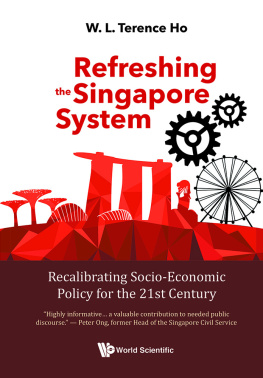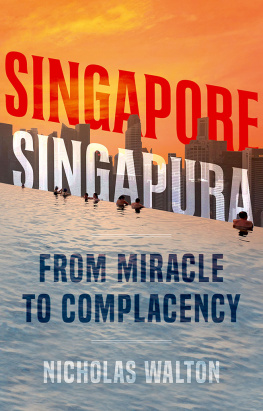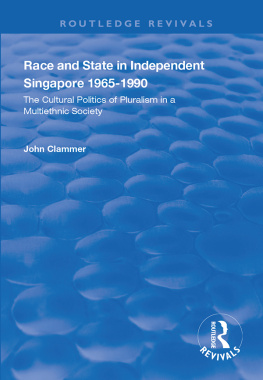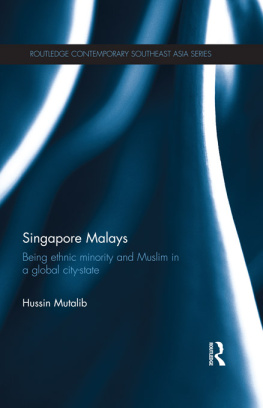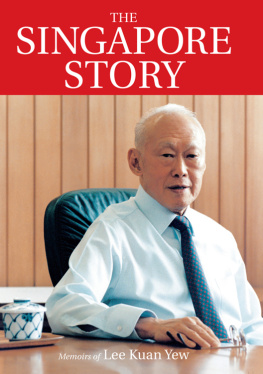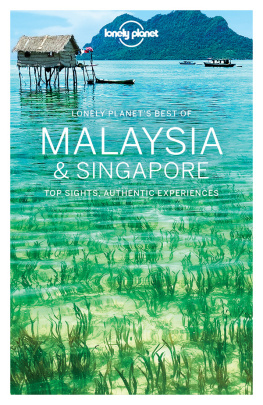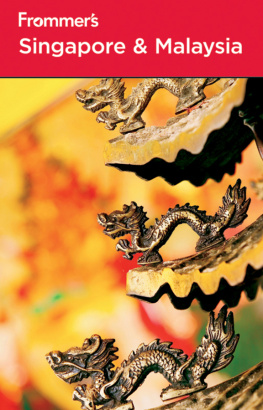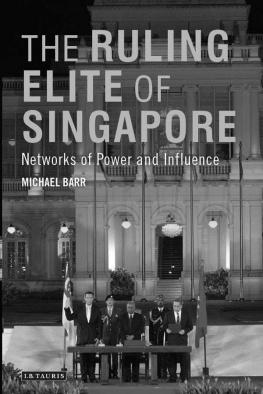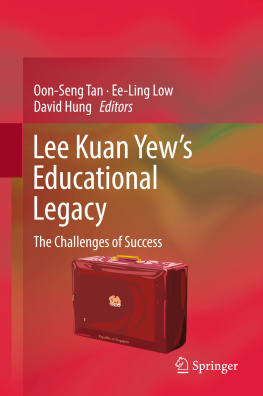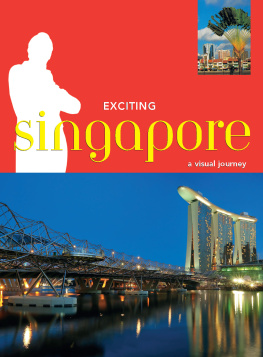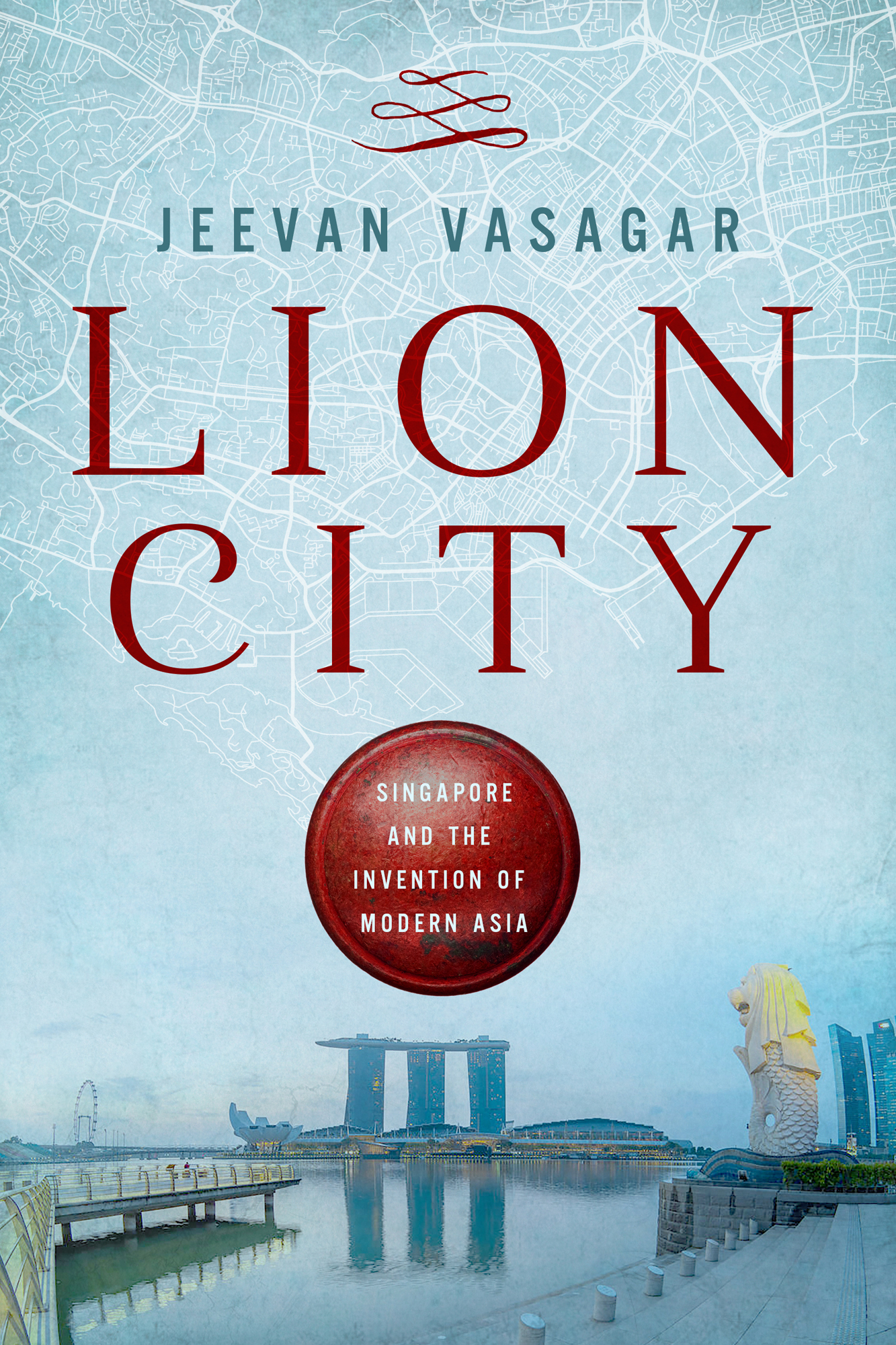Contents
Guide
Jeevan Vasagar
Lion City
Singapore and The Invention of Modern Asia
For my father.
Introduction
In the last weeks of the southwest monsoon season, before the thunderstorms and drenching rain yield to the sticky heat of October, Singapore honours its ghosts.
As dusk falls, families head outside to thrust joss sticks into the grass by the kerbside and set out trays of tangerines and rice cakes with cups of milky tea. From old to young, most are dressed casually in shorts and flip-flops, but the atmosphere is solemn as sheafs of spirit money sheets of scented paper printed to resemble bank notes are set alight on the tarmac. In the seventh month of the Chinese lunar calendar, as hungry ghosts wander the earth, the living offer food and money to send them on their way back to the afterlife.
Like Halloween, the Hungry Ghost Festival is a celebration for the living too. In open fields in Singapores housing estates, pavilions will be set up for elaborate communal banquets under red-and-white striped awnings. On open-air stages there are getai shows, where singers perform a mix of energetic electronic dance and syrupy ballads in Chinese dialect, entertaining the living and the dead alike. Superstitious folk will avoid buying or moving into a new home. Its a glimpse of an older Asia, just a few miles from the glass and steel towers of Singapores financial district. The Taoist and Buddhist custom of honouring the dead in the seventh month is fading into history in China, where communism has frayed ties with tradition. But this combination of feasting and mystical communion with the past still holds sway on a tropical island more than 1200 miles from the southernmost tip of mainland China.
I moved to Singapore from Berlin in late 2015, with my wife and two young children a nine-year-old boy and a girl aged five. It was a radical contrast: moving from the German capitals graffiti-clad walls and hipster beards to a city of razored cheeks and slick office towers.
The clichs about Singapore were familiar to me: the efficiency of Changi airport, the theme-park style entertainments revolving around shopping and eating, the chewing gum ban, caning for vandalism, hanging for drug traffickers; an iron-fisted wonderland infamously summed up by William Gibson as Disneyland with the death penalty.
But I knew it from the inside too. My father, who had died a few years earlier, had grown up in Singapore and as children we visited regularly. I remembered family outings to the food courts to feast on chicken satay and fried noodles with juicy prawns served in brimming melamine bowls; shopping for jewellery in the air-conditioned chill of the Indian goldsmiths off Serangoon Road; and walking through the baroque gateway of a Hindu temple just as the fierce tropical afternoon gave way to a balmy evening.
I had discovered in my twenties that I was not as I had assumed for all of my childhood my fathers first-born, the eldest of three children. My father had been married once before, when he lived in Singapore, and I had an elder half-sister from that marriage.
Finding out about Chitra, my half-sister in Singapore, had subtly changed my relationship with my dad. I had always had an inkling that there was more to this respectable patriarch than met the eye. Dads conservatism had thickened with age but there was evidently an adventurous streak in the man who had crossed the world in the hope of bettering himself. The faade crumbled when I knew that he had been married before. He was vexed when I confessed this knowledge to him. He had spent time constructing an image of himself as a married, hardworking, homeowning father-of-three. But this self-portrait was always a little fuzzy around the edges. Like Singapore itself, there was a darker and sadder history beneath the outward sheen of his material prosperity. In his case, this was a failed marriage across boundaries of caste, a daughter abandoned as a child, and a second marriage, against convention, to my mother.
When I returned to Singapore as a correspondent for the Financial Times, I had been away for years. While there were still glimpses of the narrow Chinese shophouses and neo-classical British architecture I recalled from my childhood, the waterfront was now a forest of glass and steel, neon-lit at night with bank logos. Driverless cars were being tested in a zone reserved for tech entrepreneurs. Singapore is on a global circuit of bankers, lawyers and IT contractors, drawing capital and white-collar talent from the US, Europe and Australia. Despite this, it is an exotic and mysterious location for many Westerners, bracketed with Hong Kong and Shanghai as modern centres of the Asian world.
Singapore is different from those other Asian cities. It is an inspiration in many distinct ways to people around the world, and is frequently cited as a role model; for the success of free enterprise if you are an American right-winger, or for the efficiency of authoritarianism if you are an African autocrat. From London to Los Angeles, educators around the world have adopted Singapore-style maths teaching. Singapore is not just a centre of modern Asia, as Hong Kong is, but something bigger an Asian city state around which the modern world, seeking illumination, revolves.
In the middle of my first year in Singapore, Britain voted to leave the European Union. Brexit was greeted with peals of bemused laughter by Singaporean friends. Then came Trump. Here was further evidence of the unreliable results that an untrammelled democracy could throw up. To observers in Singapore it seemed a vindication of the need for a firm guiding hand tamping down on social divides in case they grew so wide that they ripped a country apart. Democracy, Singapores deputy prime minister told me in autumn of that year, is not having a great run.
The early decades of the twenty-first century have been a troubling time for liberal democracies, buffeted from outside by confident dictators, seduced from within by strongmen. Capitalism, meanwhile, is the preferred economic model nearly everywhere on the planet. For Singapore, there is nothing new in the strange marriage of consumer choice and political control that has taken hold everywhere from Beijing to Moscow. While the tiny island nation holds regular elections and these are free and fair each one has returned an overwhelming majority for the same party. In Singapore, the elections are not tampered with, but stuffing ballot boxes isnt necessary for the ruling party to keep on winning. The countrys democracy is built on a framework of tight control, with restrictions on free speech, a free press, freedom of assembly, and the independence of trade unions and human rights activists. The Singapore example has been closely studied by China, and by authoritarian states across the post-Soviet sphere. The temptation is obvious; Singapore has succeeded in narrowing the political space while achieving First World prosperity.
Singapores ban on the import of chewing gum, which took effect in 1992, remains the best-known example of its founder Lee Kuan Yews mania for order. But there are plenty more rules that highlight the intensity with which the country manages the lives of its people. The government has campaigned against spitting and littering too, with fines and public shaming through photographs published in the media of people caught in the act. The gum ban was introduced on the grounds that gum residue stuck between train doors could disrupt the smooth running of the mass transit service. This was a genuine problem, with two incidents in 1991 of trains stopping because the doors could not close. Yet Lee Kuan Yew could sometimes give the impression that humanity itself, with all its messy imperfection, was a gum residue that clogged up the smooth running of his system. In a speech delivered a few months after a peaceful popular uprising had ousted the dictator Ferdinand Marcos in the Philippines, Lee declared: We decide what is right never mind what the people think.


